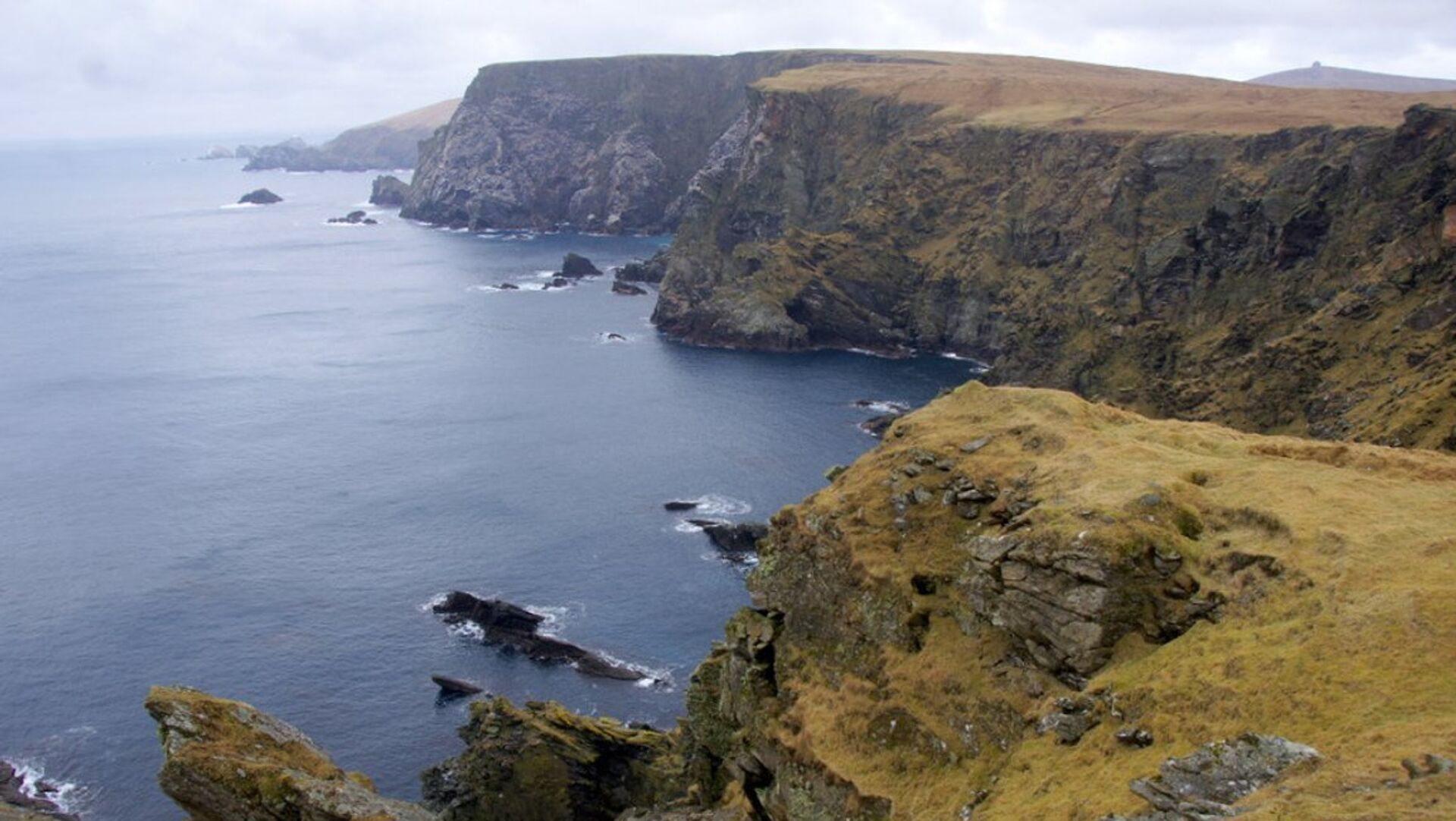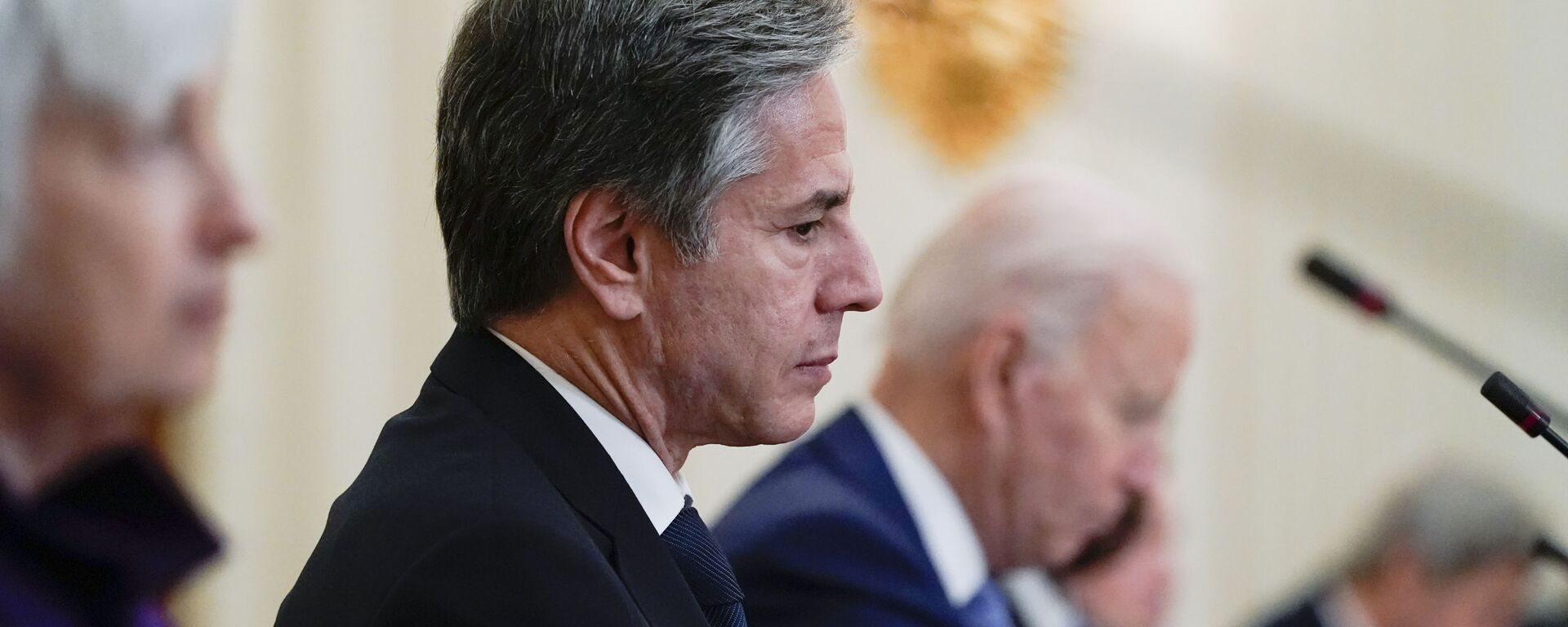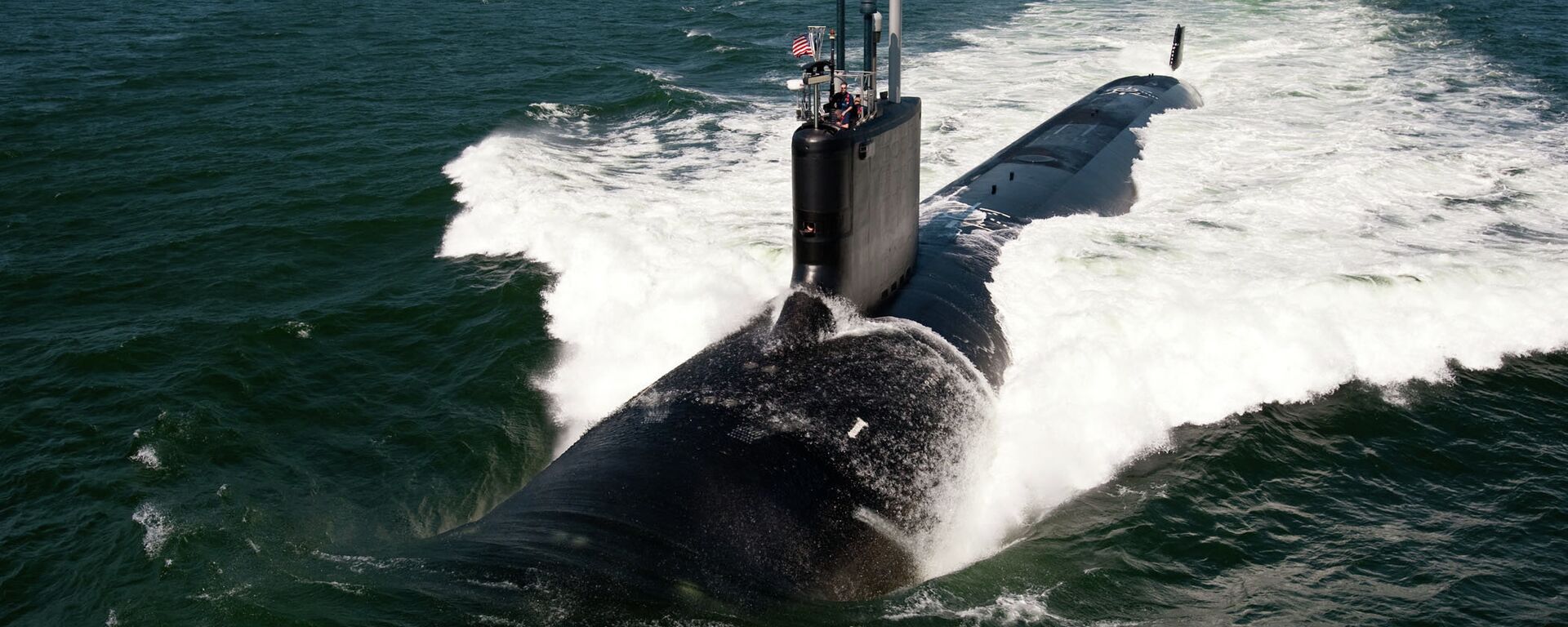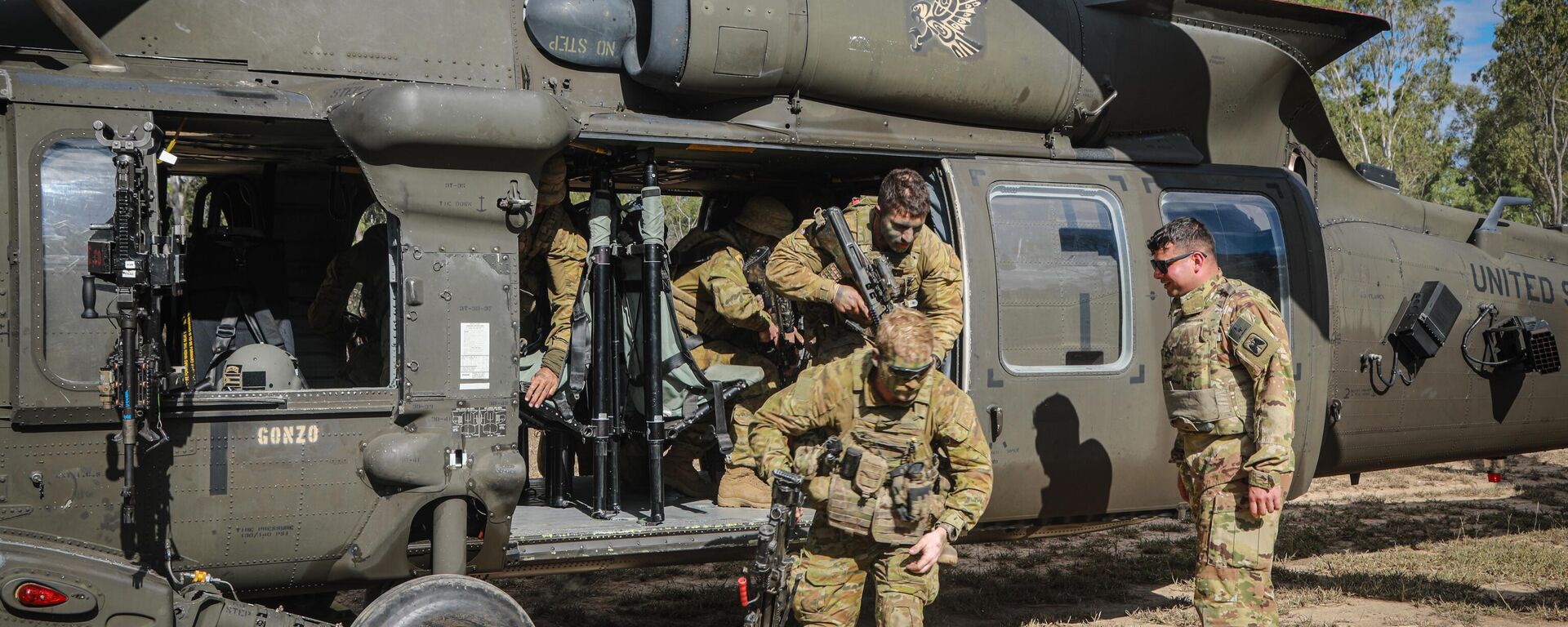US Seeks to Turn Pacific Nations Into Anti-China Battering Ram

Subscribe
US Secretary of State Anthony Blinken has embarked on a Pacific tour during which he is going to visit the Kingdom of Tonga, Australia and New Zealand between July 24 and 29. What's behind the charm offensive?
"The US is attempting to maintain primacy over the Indo-Pacific region," Brian Berletic, geopolitical analyst and former US Marine, told Sputnik. "It has been losing ground to China because China brings with it obvious economic and development opportunities whereas the US has a history of subordinating and exploiting its 'partners' in the region."
"Even countries like Tonga whose trade has been primarily with the US and its Five Eyes partners, New Zealand and Australia, have started to shift toward greater economic cooperation with China over the past 20 years. It is clear that the trajectory favors China in the long run, thus the US seeks to delay or even reverse this through entangling 'security pacts' and through the type of 'color revolution' political capture the US specializes in," Berletic continued.
On July 26, the US Secretary of State is due to open a new US Embassy in the Tongan capital of Nukuʻalofa.
Per the State Department's website, Blinken will discuss "shared democratic values and vision of a connected, prosperous, peaceful, and resilient Pacific region" with Tonga, a Polynesian kingdom of more than 170 South Pacific islands.
However, at the core of his charm offensive is Joe Biden's Indo-Pacific strategy aimed at reinvigorating the US' waning leadership in the region and trying to squeeze China out. In early 2022 US high-ranking officials intensified visits to the Pacific region, held virtual conferences and pledged millions of dollars for development. On September 28, the White House kicked off a first-ever summit with Pacific islands leaders.
However, some experts believe that Biden's Indo-Pacific strategy is a continuation of Barack Obama's Pivot to Asia. In mid-2010, at the ASEAN Regional Forum meeting in Hanoi, then Secretary of State Hillary Clinton announced the US' "vital interest" in the region. Obama's Pivot to Asia also envisaged bolstering trade alliances with regional players bypassing China.
US Flexing Military Muscle in Pacific
Meanwhile, the Biden administration is moving forward with military projects in Oceania and Asia-Pacific in general, according to Berletic.
"The US has openly talked about expanding its military presence in the region and preventing China from making economic or military inroads across Oceania," the US military veteran said. "The US, which is incapable of and uninterested in investing in infrastructure in these states, instead invests millions of dollars annually through organizations like the National Endowment for Democracy (NED) to manipulate their internal politics, media space, and even education system. By fostering anti-Chinese sentiment, the US hopes to encircle Beijing with hostile proxy states not only in Oceania but also across East and Southeast Asia."
Last year, the Department of Homeland Security (DHS) announced the expansion of the US Coast Guard operations in the Asia-Pacific region from March 2023. Earlier, RAND, an influential US think tank, argued that "less militaristic" and "low-key" coast guards would be a new asset of choice for enhancing US military presence in the Pacific region. According to the think tank, the US had to "enhance interoperability between coast guard and naval commanders" and "begin to develop games that deal exclusively with grey-zone escalation scenarios involving non-military actors such as coast guards, maritime militia, and fishing vessels."
When it comes to the broader Asia Pacific region, the US Indo-Pacific Command is enhancing military cooperation with US allies and other regional players, beefing up its presence and embracing new military tactics. Meanwhile, AUKUS – a trilateral alliance of the US, UK and Australia – is pushing ahead with its nuclear submarine project and testing new drone swarms.
US Can't Persuade Pacific Nations to Choose Sides
It raises the question whether Washington would manage to persuade the Pacific nations to choose sides and turn their back on China. However, this is unlikely, per James Bradley, China expert, historian and author of The China Mirage: The Hidden History of American Disaster in Asia.
"America comes with rhetoric but not much else for Oceania," Bradley told Sputnik. "All eyes are on the Durban BRICS meeting in August which will be more bad news for the dollar. Uncle Sam is a distant uncle in terms of Oceania and the uncle is focused on Europe. China is a next-door neighbor flush with funds, ready to invest in projects and buy products. Rhetoric aside, China is Australia and New Zealand‘s number one trading partner. Oceania would like to cash in also."
The expert likewise expressed skepticism with regard to Blinken's charm offensive: "Blinken is showing the American flag after China has been all over the area recently."
The US cannot persuade Pacific island nations to limit their engagement with China, echoed Berletic. He suspects that Washington may try to coerce Pacific nations into doing what the US wants or even oust Pacific governments from power and install client regimes that will.
"On an even playing field, why would any nation choose entangling 'security pacts' with the United States aimed at China who either is or will soon be their largest trade partner?" the US military veteran asked. "Why would any nation in the region sign up willingly to cut themselves off from their best hope at obtaining the investment and technical assistance required for the sort of infrastructure desperately needed to reduce poverty and increase economic opportunities in their nations?"
Closing Ranks With US is Fraught With Security Risks
Pacific states are presently walking a tightrope between two great powers and don't want to choose sides. Their resolve varies between states, according to the former US Marine.
"Some like the Solomon Islands made a bold move to decisively side with China and to seek security assistance to head-off the political interference the US was already involved in there," Berletic said. "Others, like Papua New Guinea who find themselves doing more and more business with China, still conditionally sign security pacts with the US most likely to placate Washington and buy time until its unwarranted influence is displaced from the region."
Per Berletic, nations should beware of closing ranks with the US and its NATO allies if they want to maintain sovereignty.
"Those that sign on to Washington’s China containment policy find themselves deprived of economic development while endangering national interests as the US transforms them into a geopolitical battering ram against Beijing," the US military veteran concluded.






